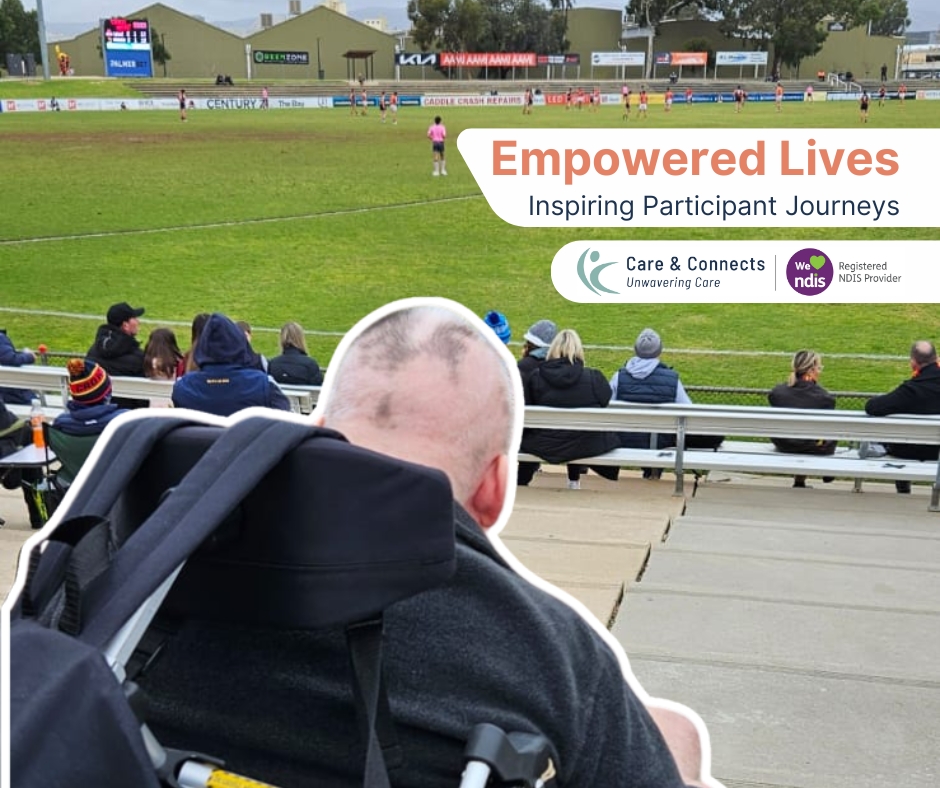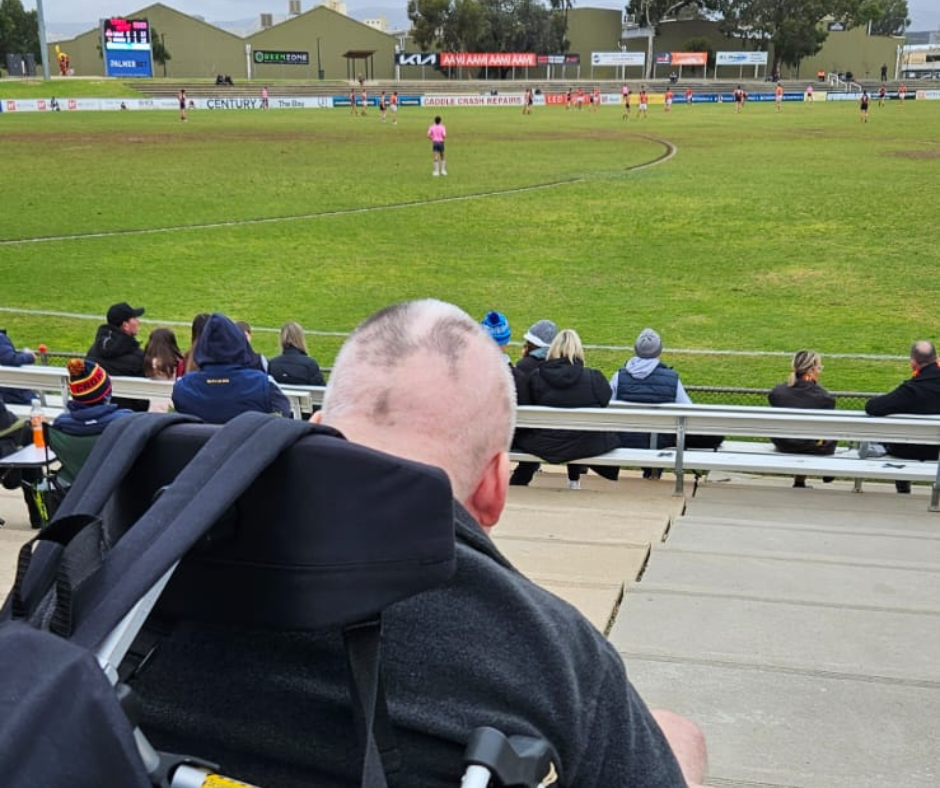Massive events like concerts, festivals, and sports games are more than just entertainment—they are powerful opportunities for inclusion, growth, and joy. We’ve explored this topic before with Illuminate Adelaide 2025, and the footy finals are around the corner, it’s the perfect time to revisit the impact of events on the lives of NDIS participants.
Take David, one of our participants at Care and Connects. David loves footy—like many Australians—and attending live games has never been out of reach because of his condition. With the right support, attending sporting events becomes more than community access—it becomes part of a fulfilling life.
So, how do sport events benefit NDIS participants, and how can providers support them effectively?

1. Social Inclusion and Community Participation
Building Connections:
Sporting events offer rich opportunities to meet new people, socialise, and feel part of a larger community—reducing isolation.
Sense of Belonging:
Being surrounded by others cheering for the same team creates a shared experience that fosters inclusion and emotional connection.
Active Engagement:
Some events go beyond spectating by offering adapted activities or inclusive programs that participants can join.
2. Psychological and Emotional Benefits
Uplifting Mood:
Live games can be energising and joyful—helping reduce stress, anxiety, and even symptoms of depression.
Boosting Confidence:
Attending public events independently (with the right supports) can be empowering and confidence-building.
Enjoyment and Relaxation:
The fun and excitement of sport provide healthy distraction and improve emotional wellbeing.
3. Physical Health Advantages
Inspiring Physical Activity:
Watching athletes can motivate participants to pursue their own physical goals—whether through therapy, adaptive sport, or daily movement.
Accessibility Matters:
Most modern sport venues are designed with accessible seating, bathrooms, and transport connections, making participation easier.
4. Developing Life Skills
Improving Social Skills:
Events involve navigating crowds, asking for help, and interacting with others—real-world skills that support independence.
Learning to Plan:
Scheduling transport, organising tickets, and packing essentials help develop organisation and problem-solving skills.
5. Enhancing Quality of Life
Leisure and Fun:
Being able to attend and enjoy recreational events is vital for personal fulfillment and life satisfaction.
Access to New Support Networks:
Some events offer stalls or activations by community organisations—opening the door to new resources and friendships.
Conclusion: The Role of Providers Like Care and Connects
SSporting events are not just outings—they’re opportunities to grow, connect, and thrive. For NDIS participants, these experiences support the core goals of the scheme: choice, control, inclusion, and wellbeing.
At Care and Connects, we help participants plan and attend the events that matter to them—whether it’s footy at Adelaide Oval, a concert, or a community festival. Our team works closely with each person to:
- Plan transport and accessibility
- Match the right support workers
- Coordinate tickets and logistics
- Build confidence and independence
- Ensure safety and comfort throughout the experience
Because we believe everyone deserves to be part of the crowd, cheering, laughing, and living life to the fullest.
If you’re a participant—or a support coordinator looking to make these experiences happen—get in touch with Care and Connects today.
Resources
